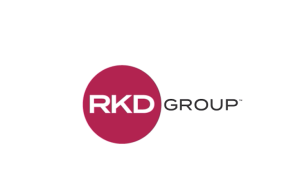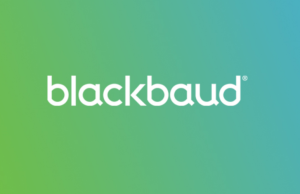The spitting contest between fundraising technology software and service providers is officially engaged.
Blackbaud’s offer of $1.12 per share for troubled Software-as-a-Service (SaaS) provider Kintera in San Diego caused varying degrees of hysterical reaction, funny and otherwise, from competitors, users and tech bloggers.
The offer for Kintera continues the Charleston, S.C.-based Blackbaud’s ravenous appetite for gobbling up applications and competitors. During the past 18 months, the firm has spent more than $130 million to tighten its grip on the nonprofit software space.
The company is expected to close the Kintera deal on or around July 2. The price is $46 million but with net operating loss carry-forwards, the price might be as little as $36 million for a firm with $44.9 million in revenue.
The acquisition of Kintera would bolster a major segment of Blackbaud’s product line, the online content management and deployment Sphere¨ technology platform, which has a significant market share. Blackbaud has NetCommunity™, but it hasn’t gained the wide acceptance by users that Kintera and Austin, Texas-based Convio have garnered.
First shot Convio fired one of the first shots with an email message from Gene Austin, its chief executive officer. "Blackbaud now faces the task of addressing the well-publicized operational challenges at Kintera, while rationalizing a roadmap that includes multiple eCRM and donor management products from four companies (Blackbaud, Target Analytics, eTapestry and Kintera). It will be interesting to watch this integration play out over the coming quarters and years," wrote Austin.
He was making reference to the fact that although it has approximately 4,000 customers and reported $44.9 million in revenue for 2007, Kintera has never made a profit. Founded in 1999, the company raised $40 million in its July 2003 initial public offering before beginning trading that December. By April 2004, it had reached an all-time high of $17.73 per share. On March 20, it hit a 52-week low of 20 cents per share.
"My hope is that this acquisition will convince Blackbaud to listen and respond to the growing demand from nonprofits for interoperability and an open approach to integration," Austin continued. "We would like to see Blackbaud make their APIs freely available, following Convio and other leading vendors who have worked with clients and the market to drive improved results. Better data integration benefits the nonprofit market."
The e-letter comments brought a snicker from Blackbaud President and CEO Marc Chardon. Regarding the interoperability, he said that Blackbaud products can be customized and that the acquisitions work together in a "technology stack." He took an only slightly veiled shot at Convio, which purchased rival GetActive Software for $18 million last year and is migrating GetActive clients to a Convio system.
"The senior level people are still there," Chardon said of the companies acquired by Blackbaud during the past two years and compared that to the GetActive acquisition by Convio where nearly all of the senior managers are gone.
Kintera will continue to be led by current President and Chief Executive Officer Richard LaBarbera. Kintera operations will continue to be directed from its existing offices in San Diego.
For those who see the acquisition of Kintera as leaving just two major vendors of online fundraising communication, Chardon described the marketplace as "the middle of a growth cycle."
That’s not how other competitors see it. "Blackbaud’s $46 million acquisition of Kintera, announced May 29th, continues Blackbaud’s efforts to eliminate competition and monopolize the nonprofit software market. The purchase, which is likely to be good for both Blackbaud and Kintera shareholders, is likely to lead to diminished software options for the nonprofit community," according to a statement from Douglas Schoenberg, chief executive officer of SofterWare, parent company of DonorPerfect Fundraising Software, a Blackbaud competitor, based in Horsham, Pa.
"It seems unlikely that Blackbaud will be interested in much of Kintera’s constituent management technology, which mostly overlaps with products they already have," according to Schoenberg.
Chardon disputes the contention, explaining that the Kintera Sphere® is an SaaS model that can’t be set up in-house, whereas Blackbaud’s NetCommunity™ can be operated from the charity’s offices.
Chardon said that negotiations for Kintera were ongoing for "three or four months" prior to the tender offer. He declined to be specific regarding possible changes because the deal was not completed and Kintera was still a public company (NASDAQ), as is Blackbaud, and so Securities and Exchange Commission (SEC) rules prohibit such discussion.
He could not comment on whether the layoffs at Kintera, announced a week before the offer, had anything to do with the negotiations. During its first-quarter conference call in early May, Kintera announced another round of layoffs, this time of about 14 percent. During the past two years, Kintera has reduced staff from less than 500 to an expected 240 after the latest layoffs, which are expected to save $1 million a quarter by the third quarter of this year.
Blackbaud expects to finance the deal with cash and borrowings from its credit facility. Blackbaud’s acquisition of Kintera is structured as an all-cash tender offer for all of the shares of Kintera at a price of $1.12 per share, a 65-percent premium compared to its 68-cents a share close the day the acquisition offer was announced.
Convio announced plans last August to go public and raise $86 million, which was expected in the first quarter of 2008 but has yet to take off. Austin told The NonProfit Times that while the initial public offering plan has not been pulled, he does not expect the stock sale to occur this year.
Kintera’s principal offering is the online Sphere® technology platform, which is used by such organizations as American Lung Association, Big Brothers Big Sisters of America, International Fund for Animal Welfare, Lance Armstrong Foundation and Sesame Workshop to manage online fundraising events and in 2007 processed more than $400 million in online gifts. Almost 2,300 organizations run their Web presence on Sphere®, which accounted for a majority of Kintera’s $45 million in revenue last year.
Kintera, which went on a buying spree of its own when it went public and before those purchases got the firm into financial trouble, also offers wealth profiling and screening services as well as an accounting software solution, both similar to Blackbaud’s offering.
Bringing the two companies together is expected to reduce the combined, projected research and development spending by $2 million annually, Chardon said, through decreases in future hiring. Another $1 million in annual savings is expected from Kintera’s public company costs.
Blackbaud bought online donor management and advocacy tool eTapestry last summer for $24.8 million and up to another $1.5 million under a two-year, stock-based performance incentive arrangement. eTapestry had unaudited revenue of approximately $7 million for 2006, according to a Blackbaud spokesperson.
Blackbaud also financed that deal through a combination of cash and borrowing from its credit facility. eTapestry, based just outside Indianapolis, Ind., developed one of the first SaaS offerings built specifically for nonprofits. SaaS means that the software resides at the vendor and all transactions are done online.
eTapestry reportedly had more than 3,000 customers of its on-demand services, with donor records ranging from several hundred per organization to more than 300,000.
Earlier in 2007, Blackbaud acquired Target Analysis Group for $60 million. The Cambridge, Mass.-based Target has donor management software but also has a donor research, database operation and fundraising consultancy.
During 2006, the firm purchased software provider and competitor Campagne Associates for more than $6 million. The largest purchase prior to that was in 1997 when it acquired Master Software Corp.
Master Software, coincidentally, was owned by the same people who founded eTapestry a few years later when their non-compete agreement expired. NPT








